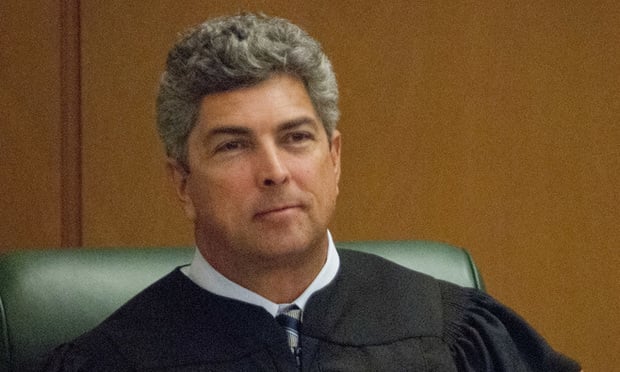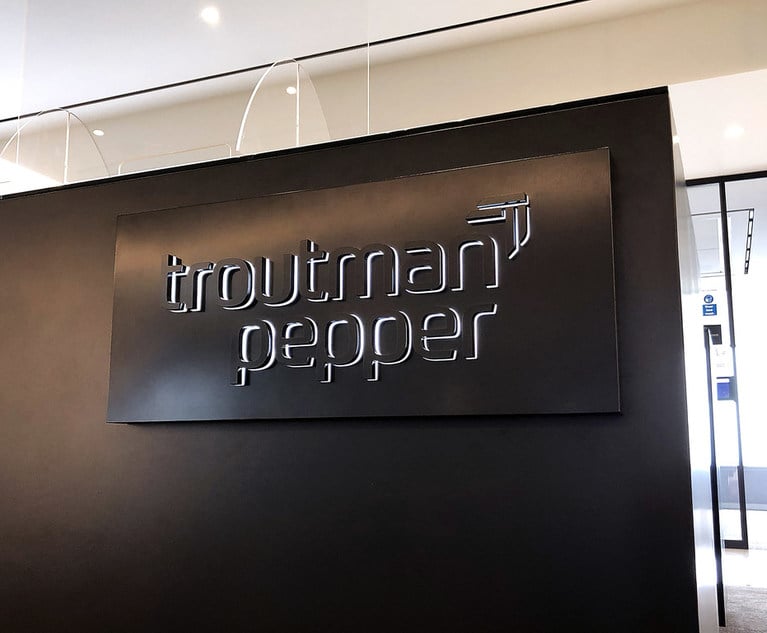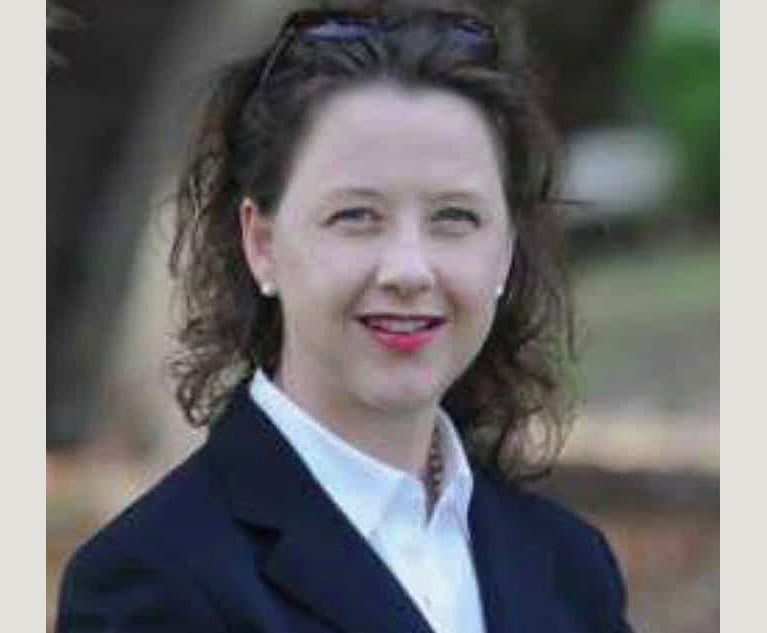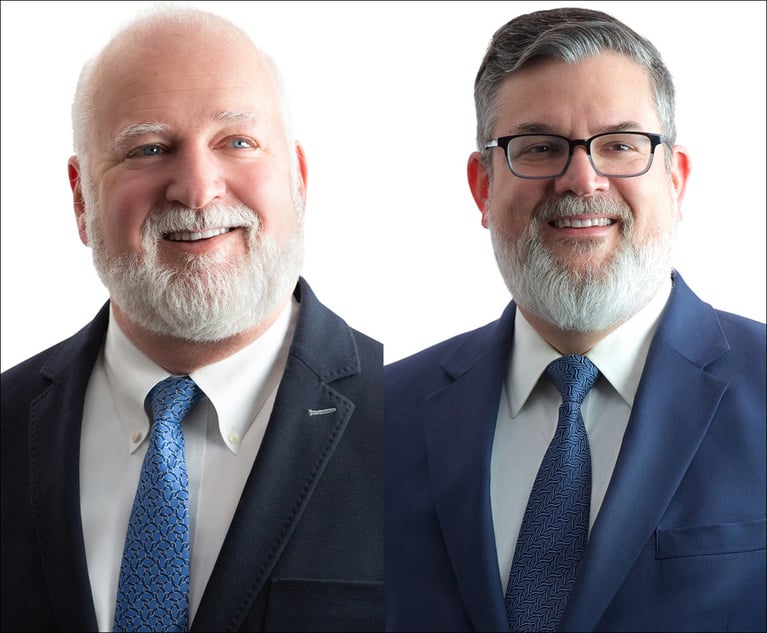Supreme Court Warms Up Food Poisoning Suit Against BBQ Caterer
“We find that the standard that has developed over the years in the Court of Appeals has conflated cases at both the trial and summary judgment stages, thus creating the mistaken impression that food poisoning cases 'are a unique species of negligence cases' imposing a heavier burden upon the plaintiff." —Justice Michael Boggs
August 21, 2018 at 03:10 PM
5 minute read
 Justice Michael Boggs, Georgia Supreme Court (Photo: John Disney/ALM)
Justice Michael Boggs, Georgia Supreme Court (Photo: John Disney/ALM)
Georgia's high court has reinstated a case against a barbecue restaurant, saying judges below have been following a faulty recipe for food-poisoning liability.
In a unanimous opinion written by Justice Michael Boggs, the Georgia Supreme Court on Monday reversed the Georgia Court of Appeals' decision, and that of Morgan County Superior Court Judge Hugh Wingfield III, in granting Big Kev's Barbecue's motion for summary judgment.
The decision means plaintiffs Joshua and Taylor Patterson can move forward with their lawsuit against Big Kev's owner, company called Kevon, over the chicken the couple ate at a wedding rehearsal dinner which they claim made them ill. The husband tested positive for salmonella while hospitalized for his symptoms, according to the court. Their lawyers presented evidence showing other guests were sickened, too, and that at least one also tested positive for salmonella.
“We granted this petition for certiorari to consider whether summary judgment for the defendant was properly granted in this food poisoning case,” Boggs said. “A sharply divided Court of Appeals affirmed the trial court's grant of summary judgment to the defendant caterer on the issue of proximate cause.”
The case produced a 5-4 split and two strong dissents at the Georgia Court of Appeals. The majority said no, the guests could not sue because they could not prove it was the food served by Big Kev's Barbecue that made them sick. Judge Charlie Bethel wrote the June 30, 2017, majority opinion, joined by Presiding Judge M. Yvette Miller and Judges Elizabeth Branch, Carla McMillian and Amanda Mercier.
“A plaintiff may prevail in food poisoning cases in Georgia by establishing that the food at issue was defective or unwholesome,” Bethel wrote. “However, in the absence of direct evidence of the defectiveness of the food, recovery can be supported by circumstantial evidence only if every other reasonable hypothesis as to the cause of the plaintiff's illness can be excluded by the evidence brought forward by the plaintiff.”
Former Chief Judge Sara Doyle disagreed and filed a dissenting opinion. Presiding Judges Anne Barnes and Christopher McFadden joined Doyle's dissent, and McFadden filed a separate dissenting opinion as well. Judge Clyde Reese concurred with McFadden.
Now, the high court has sided with the dissenters.
“We find that the standard that has developed over the years in the Court of Appeals has conflated cases at both the trial and summary judgment stages, thus creating the mistaken impression that food poisoning cases 'are a unique species of negligence cases' imposing a heavier burden upon the plaintiff to show proximate cause than that generally required,” Boggs said. “The appropriate legal standard on summary judgment, correctly applied to the facts of this case, shows that the trial court erred in granting summary judgment on the issue of proximate cause.”
Boggs gave credit in a footnote to the plaintiffs bar group Georgia Trial Lawyers, which wrote an amicus curiae brief supporting the Pattersons.
The Pattersons were represented by Blakely Frye and Travis Cashbaugh of Hill, Kertscher & Wharton.
“We're very pleased with the Supreme Court's decision,” Frye said by email Tuesday. “We believe the Court corrected an improper summary judgment standard that had developed in food poisoning cases over several decades. The decision establishes that the rules concerning direct and circumstantial evidence apply the same to food poisoning claims as to other claims, and that a plaintiff offering circumstantial evidence in support of a food poisoning claim need not conclusively exclude all other theories of their illness to overcome a motion for summary judgment under Georgia law.”
Big Kev's attorney is Pamela Newsom Lee of Swift Currie McGhee & Hiers. She could not be reached for comment.
At the Court of Appeals, Doyle said in her dissent that the diagnosis of salmonella for Joshua Patterson and another wedding guest, plus testimony that a total of 17 people became ill with similar symptoms within days of eating the rehearsal dinner, were “sufficient to exclude the alternative hypotheses posited by Big Kev's as to the cause of the illness. Thus, the grant of summary judgment in favor of Big Kev's was improper.”
McFadden said in his separate dissent that his colleagues in the majority were looking at the whole case the wrong way.
“Because the trial court invaded the province of the jury in granting summary judgment to Big Kev's, the judgment should be reversed,” McFadden wrote.
McFadden agreed with Bethel that the plaintiffs have a heavy burden of proof because they have to rely on circumstantial evidence, having no proof that salmonella was in the food. But, McFadden said, “that is their burden of proof as the plaintiffs at trial. That is not their burden as the nonmovants opposing a motion for summary judgment.”
Instead, McFadden said, the burden of proof should have been on Big Kev's as the party moving for summary judgment.
Boggs said as much Monday writing for the high court.
“While the evidence presented by the Pattersons was circumstantial, it went well beyond the general allegations of the plaintiffs in those [previous Court of Appeals] decisions, and the circumstantial evidence presented by Big Kev's failed to rebut it. Under these circumstances, Big Kev's has failed to demonstrate the absence of evidence of proximate cause,” Boggs said. “The trial court's order granting summary judgment on that issue therefore must be reversed.”
The case is Patterson v. Kevon, No. S17G1957.
This content has been archived. It is available through our partners, LexisNexis® and Bloomberg Law.
To view this content, please continue to their sites.
Not a Lexis Subscriber?
Subscribe Now
Not a Bloomberg Law Subscriber?
Subscribe Now
NOT FOR REPRINT
© 2025 ALM Global, LLC, All Rights Reserved. Request academic re-use from www.copyright.com. All other uses, submit a request to [email protected]. For more information visit Asset & Logo Licensing.
You Might Like
View All

Troutman Pepper Says Ex-Associate Who Alleged Racial Discrimination Lost Job Because of Failure to Improve
6 minute read
Judge Orders Acquittal of Ex-Prosecutor on 1 of 2 Counts in Misconduct Trial Over Ahmaud Arbery Case
3 minute read
Trending Stories
- 1Public Notices/Calendars
- 2Wednesday Newspaper
- 3Decision of the Day: Qui Tam Relators Do Not Plausibly Claim Firm Avoided Tax Obligations Through Visa Applications, Circuit Finds
- 4Judicial Ethics Opinion 24-116
- 5Big Law Firms Sheppard Mullin, Morgan Lewis and Baker Botts Add Partners in Houston
Who Got The Work
J. Brugh Lower of Gibbons has entered an appearance for industrial equipment supplier Devco Corporation in a pending trademark infringement lawsuit. The suit, accusing the defendant of selling knock-off Graco products, was filed Dec. 18 in New Jersey District Court by Rivkin Radler on behalf of Graco Inc. and Graco Minnesota. The case, assigned to U.S. District Judge Zahid N. Quraishi, is 3:24-cv-11294, Graco Inc. et al v. Devco Corporation.
Who Got The Work
Rebecca Maller-Stein and Kent A. Yalowitz of Arnold & Porter Kaye Scholer have entered their appearances for Hanaco Venture Capital and its executives, Lior Prosor and David Frankel, in a pending securities lawsuit. The action, filed on Dec. 24 in New York Southern District Court by Zell, Aron & Co. on behalf of Goldeneye Advisors, accuses the defendants of negligently and fraudulently managing the plaintiff's $1 million investment. The case, assigned to U.S. District Judge Vernon S. Broderick, is 1:24-cv-09918, Goldeneye Advisors, LLC v. Hanaco Venture Capital, Ltd. et al.
Who Got The Work
Attorneys from A&O Shearman has stepped in as defense counsel for Toronto-Dominion Bank and other defendants in a pending securities class action. The suit, filed Dec. 11 in New York Southern District Court by Bleichmar Fonti & Auld, accuses the defendants of concealing the bank's 'pervasive' deficiencies in regards to its compliance with the Bank Secrecy Act and the quality of its anti-money laundering controls. The case, assigned to U.S. District Judge Arun Subramanian, is 1:24-cv-09445, Gonzalez v. The Toronto-Dominion Bank et al.
Who Got The Work
Crown Castle International, a Pennsylvania company providing shared communications infrastructure, has turned to Luke D. Wolf of Gordon Rees Scully Mansukhani to fend off a pending breach-of-contract lawsuit. The court action, filed Nov. 25 in Michigan Eastern District Court by Hooper Hathaway PC on behalf of The Town Residences LLC, accuses Crown Castle of failing to transfer approximately $30,000 in utility payments from T-Mobile in breach of a roof-top lease and assignment agreement. The case, assigned to U.S. District Judge Susan K. Declercq, is 2:24-cv-13131, The Town Residences LLC v. T-Mobile US, Inc. et al.
Who Got The Work
Wilfred P. Coronato and Daniel M. Schwartz of McCarter & English have stepped in as defense counsel to Electrolux Home Products Inc. in a pending product liability lawsuit. The court action, filed Nov. 26 in New York Eastern District Court by Poulos Lopiccolo PC and Nagel Rice LLP on behalf of David Stern, alleges that the defendant's refrigerators’ drawers and shelving repeatedly break and fall apart within months after purchase. The case, assigned to U.S. District Judge Joan M. Azrack, is 2:24-cv-08204, Stern v. Electrolux Home Products, Inc.
Featured Firms
Law Offices of Gary Martin Hays & Associates, P.C.
(470) 294-1674
Law Offices of Mark E. Salomone
(857) 444-6468
Smith & Hassler
(713) 739-1250






